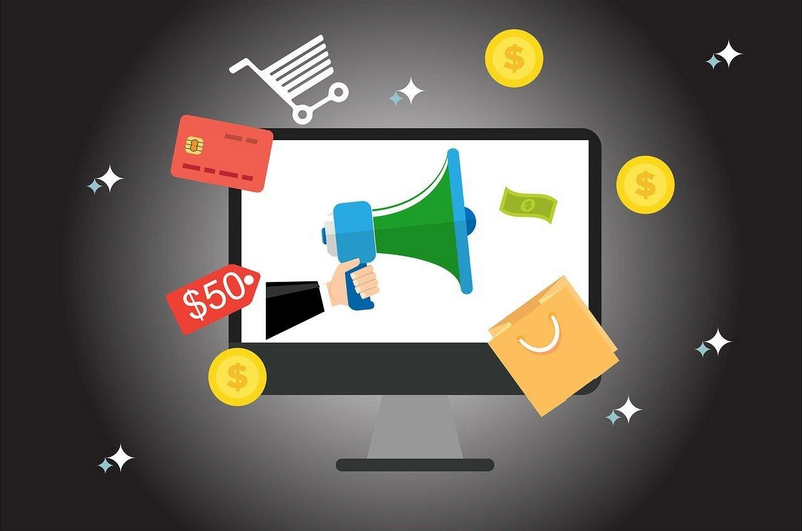Imagine you are planning a trip to see a movie. You mention it to one of your friends, who immediately tells you they have already seen it and it stinks – they advise you not to waste your money.
How likely would you be to still go and see the movie?
In our last post, we offered an in-depth guide to the concept of Willingness to Pay (WTP). We explained that WTP is an essential notion for anyone in sales and marketing to grasp because it describes how customers, far from being passive agents happy to pay whatever a vendor asks for a particular product or service, have usually already made up their mind about what is and is not an acceptable price.
Indeed, the entire act of buying can be explained in terms of consumers deciding there is value in the purchase, the perception of value leading to willingness to pay. But what people see as good value is influenced by a wide range of factors, including the product or service in question, perceptions of quality, personal values and preferences, prior experiences, knowledge, preconceptions and expectations.
Put simply, if a business wants to get its pricing strategies right, it has to understand what its customers are willing to pay.
In discussing the different factors that influence WTP in our last blog, we left one important topic out for further consideration in its own right – what other people have to say about a product we are thinking about buying.
Going back to our movie example – for most of us, our friend’s negative review would be enough to make us think twice about spending our money at the cinema. To put it in the academic terms used to explain WTP phenomena, we would wonder about the transactional utility of buying a ticket – if the movie really is awful, then we are unlikely to get any pleasure from watching it, which would defeat the point of spending our money.
The reason why the views of other people are so important to WTP is that we obviously don’t know whether a purchase, whether it is a cinema ticket, a meal at a restaurant or a new pair of trainers, will feel ‘worth it’ until we actually spend the money. As many of us don’t like taking these kinds of risks with our hard-earned cash, we look to what other people are saying to give us a clue.
There’s even a school of thought which suggests that we prefer to make decisions based on what other people say rather than making a judgement for ourselves. Dan Gilbert from Harvard University says that most of us are not very good predicting how different experiences will affect us as we fail to consider too many of the details. But what we are good at is using other people’s experiences to make a judgement about our own feelings – perhaps because we are instinctively empathetic creatures, we are good at ‘measuring’ the happiness other people describe and applying it to our own decisions.
All of this goes some way to explain the rise of online reviews. To recap, when we spend money on anything, we want to be sure we will get some level of satisfaction out of it, whether it be a pleasurable experience or a sense of value. As we’re not always great at judging whether we’ll be happy with a purchase by ourselves, we like to listen to what other people have to say. And nowadays, of course, we no longer have to rely on just talking to family, friends and acquaintances. We can read all the opinions we like courtesy of online reviews.

just how important are online reviews?
Whether you look up a product, service or experience on Google or Amazon, or go to a dedicated site like Yelp, user reviews are everywhere these days. Nine out of 10 consumers say they read online reviews before visiting a business, while 88% say they trust online reviews as much as they do personal recommendations from friends and family.
Moreover, online reviews are having a direct impact on people’s spending behaviour. According to one survey by Podium, 93% of consumers say reviews influence their purchasing decisions, with 82% acknowledging that they have made up their mind to buy based on what a review says. Looking at product reviews on social media in particular, it has been suggested that a single positive review can boost conversions by 10%, while 100 positive reviews will result in a 37% conversion uplift.
We can further refine all of this to say that online reviews have a direct bearing on what people are prepared to pay for products and services. The same Podium study found that more than two thirds of customers (68%) are prepared to pay up to 15% more for a product if they feel reassured by a positive review that they will get a good experience.
Other sources suggest that customers will spend up to 31% more for any product and service rated “excellent”, while a one-star increase in customer ratings on Yelp has been linked to an average 5 – 9% increase in business revenue. In the travel industry, three quarters of people say they are willing to pay more for a hotel that has good reviews from previous visitors.
The flipside of all of this is that 86% of people say they will hesitate to buy from a business that has negative online reviews. A single negative review is estimated to cost a business an average of 30 customers.
So the picture is clear – online reviews play a critical role in customer purchasing decisions, positive reviews encourage people to spend more, and quality of reviews therefore has a direct impact on a business’s turnover. The question is, what can businesses do to make online reviews work better for them?
learning from reviews
As well as our apparently natural tendency to take our cues from other people when it comes to making decisions about unknowns, there is another key reason why online reviews have such an impact on buying behaviour which businesses absolutely have to understand – trust.
Consumers trust reviews from other customers almost 12 times more than they trust descriptions and comments made by vendors. And it is not difficult to understand why – when we read branding messages from companies, modern consumers are smart enough to understand that they are trying to sell us something, and not everything they say can be taken at face value. With customer reviews, however, there is an expectation that what is said will be objective, honest and dispassionate, with no ulterior motives for praising a product. When there are lots of reviews for the same product, consumers also get a chance to compare opinions, good and bad.
On the one hand, this is an extremely powerful and cost effective marketing tool for brands and businesses to harness. Instead of spending vast amounts on expensive advertising campaigns to convince customers how great you are, you can sit back and let them convince each other – for no expense on your part whatsoever.
The problems occur when businesses don’t get the positive reviews they want. This is where the temptation to game the system starts to creep in – to either start writing your own fabricated reviews to make your product sound better, or to pay ‘brand ambassadors’ or ‘influencers’ to do it for you. In the long term, however, this is counterproductive. Once the seeds of doubt start to creep into customers’ minds that the reviews they are reading might not be genuine, that all important element of trust is broken. That’s when reviews will cease to have the same level of impact on purchasing decisions and WTP.
Finally, while businesses can’t write customer reviews for themselves, they can do more to encourage customers to leave feedback. This appears to be something the majority of businesses are not yet very good at – just 13% are proactive in asking customers to leave a review after they make a purchase. This is a missed opportunity, because while some people will leave feedback or comment on what they have bought on social media, the overwhelming majority are still unlikely to even think about it unless asked. We have seen the difference that larger numbers of reviews can make to conversion rates.
key takeaways
- Online reviews are now widely used by the majority of people when researching products and making purchasing decisions.
- Reviews appeal to consumers because they help them decide whether or not they will get the satisfaction they are looking for from a purchase. People also trust that they are getting an honest, objective opinion when they read what other customers have to say.
- Positive reviews have a powerful impact on the choices consumers make, on conversion rates, and also on how much they are willing to pay. Good reviews are also a great marketing tool for businesses, helping to attract more customers. In short, good reviews can be linked directly to better business performance.
- Conversely, negative reviews will put people off making a purchase and drive away custom.
- That doesn’t mean businesses should fear poor reviews, however. As an honest and direct record of what customers think about their products and services, reviews give businesses some of the best insights they are likely to get into what their customers think about them. The only appropriate response to a poor review is to take it on board and respond to the issues raised, in the hope of earning more positive reviews further down the line.
- While businesses cannot dictate what customers write in reviews, and can only focus on delivering great experiences, they can be more proactive in encouraging people to leave reviews, and therefore get the benefits of more positive feedback.
th!nkpricing is a brand of Smart Pricer. We enable a better way to sell more by offering a platform to understand, optimize, and measure your pricing in a unique way.
Want to stay in the loop and become a #pricinghero? Subscribe to our thinkpricing newsletter to not miss any upcoming blog posts.

